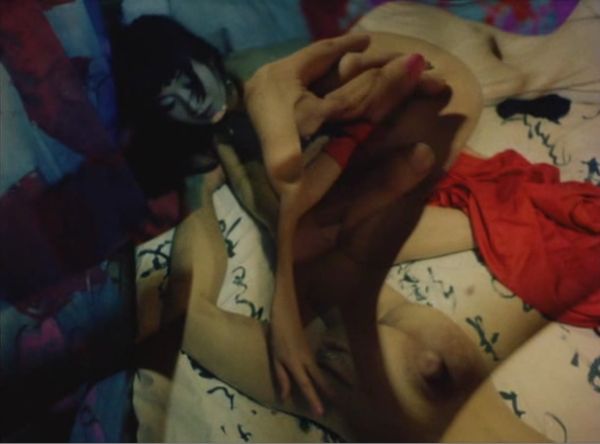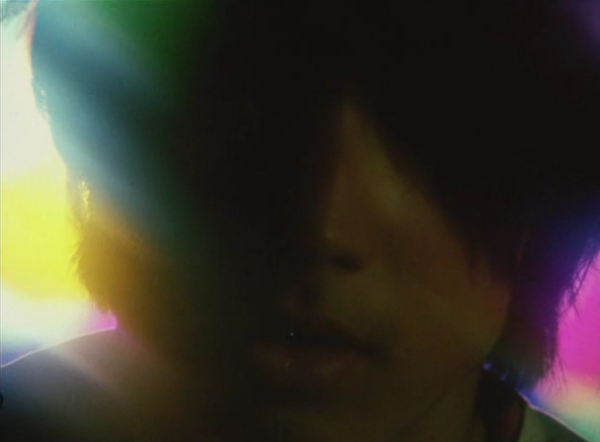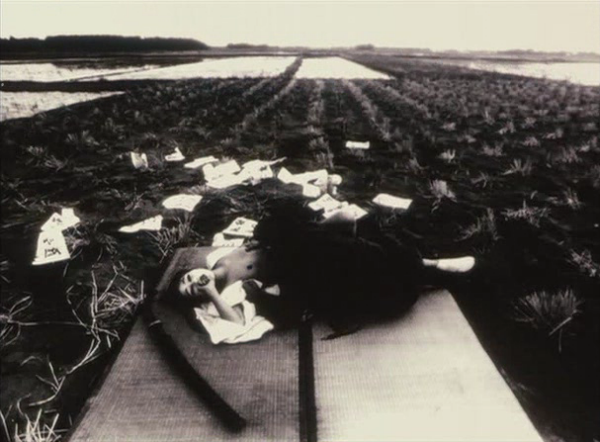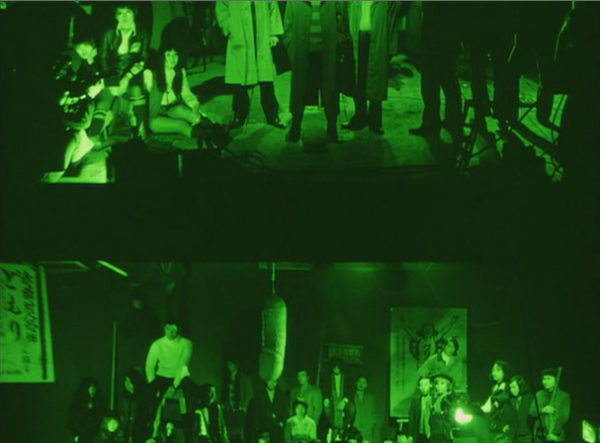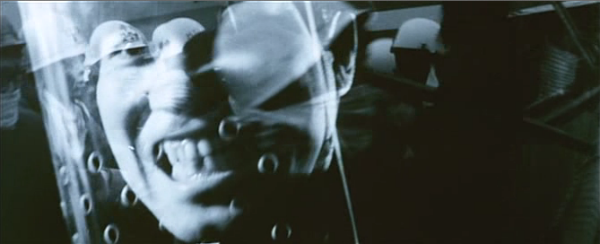
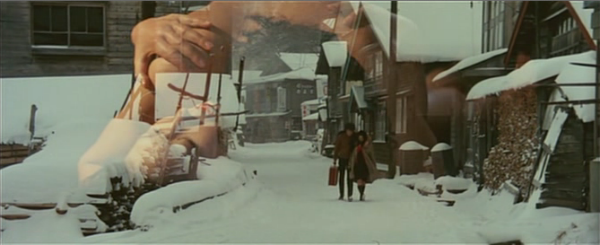
It starts out with newsreel footages of the 60s violent student demonstration against the riot police, double exposed with our protagonist (Ken Yoshizawa) getting bashed in the head. He flees but only to get into an argument with his belligerent older brother who is a cop. During the struggle, the brother gets shot by his subservient wife (Yoko Muto). The two flees to the snow covered North Country haunted by guilt and the ghost of the dead man. They become sullen lovers. Despite his reputation as a pinku exploitation film guy, Wakamatsu is a thoughtful, subversive filmmaker and a competent craftsman. Running in Madness is presented in beautiful anamorphic format. The public's sympathy with the student protesters who cried out for revolution is the one that was tied to rigid, conservative social structure. This is embodied wonderfully by Muto.
Then there is a scene where the lovers witness a naked girl being chased by small village mob on the snow swept beach. The men proceeds to beat the girl with a whip, because she eloped with an outsider. She will be gang raped by all the village men, to teach her a lesson. As for the outsider, he will be tied to a tree in the snow overnight (invoking the image of St. Sebastian). The people who help the cause will be ostracized and punished.
Not as showy or colorful as some of the other New Wavers, but Running in Madness... is a heartbreaking masterpiece that deserves attention.
